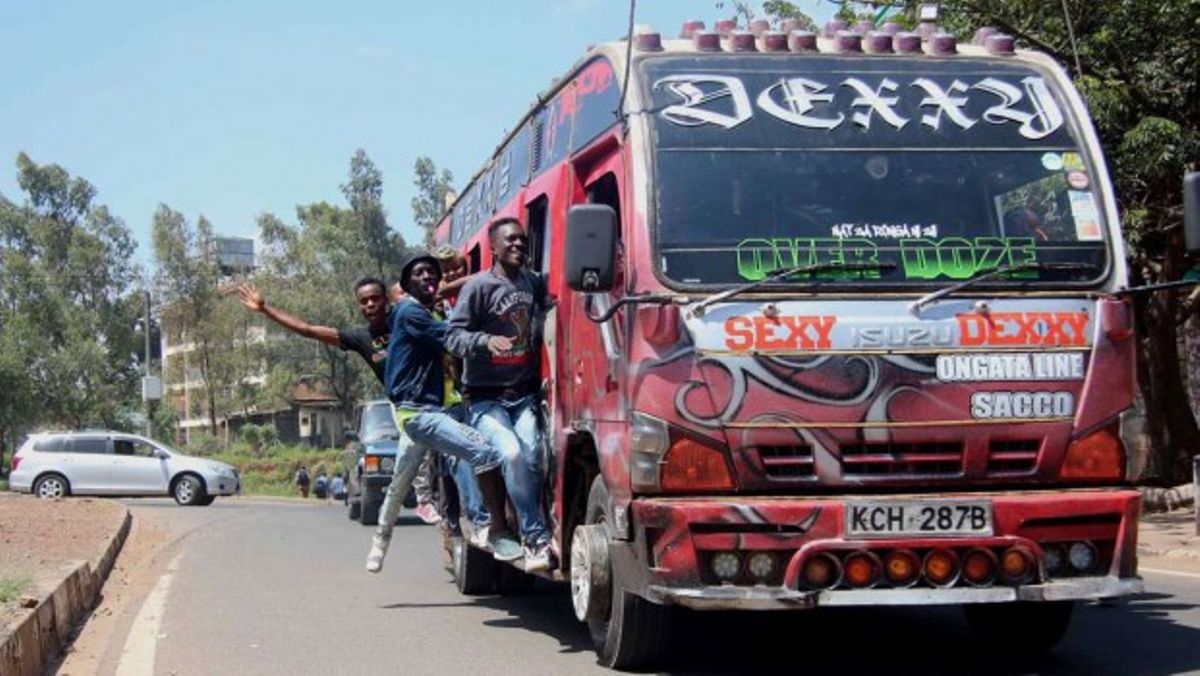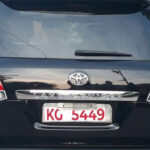The National Transport and Safety Authority (NTSA) is the cornerstone of Kenya’s road transport regulation, ensuring safety, compliance, and efficiency across public service vehicles (PSVs). For PSV operators, securing a Road Service Licence (RSL) is a critical step to legally operate matatus, buses, or tour vehicles. As Kenya’s transport sector evolves in 2025, understanding the NTSA Road Service Licence application process, associated charges, and compliance requirements is essential for operators aiming to thrive in this competitive industry. This comprehensive guide, crafted by ntsanews.co.ke, Kenya’s leading transport news platform, walks you through everything you need to know about applying for an NTSA Road Service Licence, including step-by-step instructions, costs, and practical tips tailored to the Kenyan context.
What is an NTSA Road Service Licence?
The NTSA Road Service Licence (RSL) is a mandatory permit issued by the National Transport and Safety Authority to operators of public service vehicles (PSVs) and tour/institutional vehicles in Kenya. This licence ensures that vehicles meet safety and operational standards, protecting passengers and maintaining order on Kenyan roads. Whether you operate a 7-seater matatu, a 26-seater minibus, or a tour van, the RSL is your legal authorization to provide transport services.
The RSL application process has been streamlined through the eCitizen portal, aligning with Kenya’s push for digital governance. With rising passenger numbers and stricter regulations in 2025, compliance with NTSA requirements is non-negotiable for PSV operators. Let’s dive into the application process, costs, and key considerations.
Why You Need an NTSA Road Service Licence in 2025
The Kenyan transport sector is a vital economic driver, with matatus and buses serving millions daily, from Nairobi’s bustling streets to rural routes in Kisumu and Mombasa. The NTSA Road Service Licence ensures:
- Passenger Safety: Licensed vehicles undergo inspections to meet safety standards, reducing road accidents, which claimed over 4,000 lives in Kenya in 2024, per NTSA reports.
- Regulatory Compliance: The RSL enforces adherence to traffic laws and operational guidelines, minimizing conflicts with authorities like the Kenya Police.
- Business Legitimacy: A valid RSL enhances your credibility with passengers and sacco affiliations, fostering trust in your services.
- Digital Integration: The shift to the eCitizen portal for NTSA services reflects Kenya’s digital transformation, making applications faster and more transparent.
With the government’s focus on road safety and efficient public transport in 2025, an RSL is not just a legal requirement but a gateway to sustainable operations.
Step-by-Step Guide to Applying for an NTSA Road Service Licence
The NTSA has simplified the RSL application process by integrating it into the eCitizen platform, a one-stop digital portal for government services. Below is a detailed guide to applying for your Road Service Licence in 2025.
Step 1: Add Your Organization to the eCitizen Portal
To apply for an RSL, you must first register your organization (e.g., a sacco, tour company, or institution) on the eCitizen portal. Here’s how:
- Create or Log into Your eCitizen Account: Visit ecitizen.go.ke and sign in with your personal or business account. If you don’t have an account, register using your ID number and personal details.
- Add Your Organization: Navigate to the “Business” section and select “Add Organization.” Provide details such as the business name, registration number, and contact information.
- Verify Ownership: Upload necessary documents, such as a certificate of incorporation or business registration, to link the organization to your account.
This step ensures that your RSL application is processed under your business or sacco, a requirement for PSV operators.
Step 2: Access the NTSA Service Portal
Once your organization is added, switch to the NTSA service portal:
- Log into eCitizen: Use your credentials to access your account.
- Select NTSA Service Portal: From the dashboard, choose the “NTSA Service Portal (New)” option.
- Switch to Organization Account: Use the account switcher to select your registered organization. This ensures the application is tied to your business rather than your personal account.
Step 3: Select the RSL Application Type
The NTSA offers different RSL categories depending on your vehicle’s purpose:
- Tours/Institutional RSL: For vehicles used by tour companies, schools, or institutions.
- PSV RSL: For matatus and buses operating public routes, typically affiliated with a sacco.
Select the appropriate RSL type based on your operations. For example, a 14-seater matatu operating in Nairobi would require a PSV RSL, while a school van needs an institutional RSL.
Step 4: Input Vehicle Details
To proceed, you’ll need to provide details about the vehicle:
- Enter Vehicle Registration Number: Input the registration number in capital letters (e.g., KAA 123B). Click “Validate” to confirm the vehicle is registered with NTSA.
- Upload Vehicle Image: Provide a clear JPEG image of the vehicle’s front view. Ensure the number plate is visible and the image meets NTSA’s quality standards (e.g., no blurry or low-resolution images).
Step 5: Fill in Required Information
Complete the application form with accurate details, including:
- Vehicle Capacity: Specify the number of passengers the vehicle is designed to carry (e.g., 7, 14, or 26+ seats).
- Sacco/Company Details: If applying for a PSV RSL, provide your sacco’s registration details. Tour operators must include company information.
- Route Information: For PSVs, indicate the routes your vehicle will operate (e.g., Nairobi-Mombasa or Kisii-Kericho).
- Driver Details: Ensure the driver holds a valid PSV badge, which costs Ksh 1,000 to obtain or renew.
Double-check all entries to avoid delays during approval.
Step 6: Make Payment for the RSL
The NTSA Road Service Licence fees vary based on vehicle capacity. Below are the 2025 charges for new applications:
| Passenger Capacity | New Application Fee (Ksh) |
|---|---|
| 7 passengers | 2,750 |
| 8–18 passengers | 3,250 |
| 19–25 passengers | 3,750 |
| 26 passengers and above | 4,250 |
| PSV Badge (Driver) | 1,000 |
Payment Process:
- Select your preferred payment method on the eCitizen portal (e.g., M-PESA, bank card, or Airtel Money).
- Follow the prompts to complete the payment. For example, for M-PESA, enter the Paybill number 222222 and the generated account number.
- Retain the payment confirmation for your records.
Note: Fees are subject to change, so verify the latest charges on the eCitizen portal before applying.
Step 7: Submit for Approval
After filling in the details and making the payment, submit your application for NTSA review. The approval process typically takes 1–3 business days, depending on the accuracy of your submission and compliance with NTSA standards.
Step 8: Download and Print Your RSL
Once approved, follow these steps:
- Check Application History: Log back into the NTSA service portal and navigate to “Application History.”
- Download the RSL: If approved, download the digital RSL document.
- Print the Licence: Print a physical copy of the RSL and display it prominently in your vehicle, as required by NTSA regulations.
Additional Requirements for NTSA Road Service Licence
To ensure a smooth application process, meet these NTSA requirements:
- Vehicle Inspection: Your vehicle must pass an NTSA-approved inspection to verify roadworthiness. Inspections cost between Ksh 1,300 and Ksh 4,600, depending on vehicle type.
- Valid Insurance: Provide proof of valid PSV insurance, covering passengers and third parties.
- Sacco Membership: For PSV operators, membership in a registered sacco is mandatory. Ensure your sacco is compliant with NTSA guidelines.
- Driver Qualifications: Drivers must hold a valid PSV badge and a driving licence matching the vehicle category (e.g., Class D for matatus).
- Vehicle Branding: PSVs must display sacco branding, route details, and yellow bands (for matatus) as per NTSA standards.
Failure to meet these requirements may result in application rejection or fines during enforcement checks.
Common Challenges and Solutions in the RSL Application Process
Applying for an NTSA Road Service Licence can come with hurdles, especially for first-time applicants. Here are common issues and how to address them:
- Issue: Delayed approvals due to incomplete submissions.
- Solution: Double-check all details, including vehicle registration and uploaded images, before submitting. Ensure the JPEG image is clear and meets NTSA specifications.
- Issue: Payment processing errors on eCitizen.
- Solution: Confirm your payment method has sufficient funds. If using M-PESA, ensure the Paybill number and account details are correct. Contact eCitizen support if issues persist.
- Issue: Vehicle failing inspection.
- Solution: Schedule a pre-inspection at an NTSA-approved center to address mechanical or safety issues before applying.
- Issue: Lack of sacco membership.
- Solution: Join a registered sacco or consult NTSA for guidance if operating as an independent tour operator.
NTSA Road Service Licence Charges in 2025: What to Budget For
Budgeting for an RSL involves more than just application fees. Consider these additional costs:
- Vehicle Inspection: Ksh 1,300–4,600, depending on vehicle size.
- PSV Insurance: Costs vary but typically range from Ksh 50,000–100,000 annually, depending on vehicle capacity and insurer.
- PSV Badge Renewal: Ksh 1,000 per driver, renewed annually.
- Sacco Fees: Joining a sacco may involve registration fees (Ksh 5,000–20,000) and monthly contributions.
- Vehicle Branding: Painting and branding costs can range from Ksh 10,000–30,000 for matatus.
For example, a 14-seater matatu operator might budget:
- RSL Application: Ksh 3,250
- Inspection: Ksh 2,500 (average)
- PSV Badge: Ksh 1,000
- Insurance: Ksh 70,000 (estimated)
- Total: ~Ksh 76,750 (excluding sacco and branding costs)
Always verify costs with NTSA or eCitizen, as fees may fluctuate.
Tips for a Successful NTSA Road Service Licence Application
To streamline your RSL application and avoid setbacks, follow these practical tips:
- Use a Reliable Internet Connection: The eCitizen portal requires stable connectivity to avoid session timeouts or payment errors.
- Keep Documents Ready: Have digital copies of your vehicle logbook, insurance, and sacco registration ready for upload.
- Verify Vehicle Details: Ensure the vehicle registration number matches NTSA records to avoid validation errors.
- Consult Your Sacco: Saccos often provide guidance on NTSA compliance and can assist with applications.
- Stay Updated: Follow ntsanews.co.ke or NTSA’s official channels for updates on fees, regulations, or portal changes.
The Role of Saccos in the RSL Process
In Kenya, saccos (Savings and Credit Cooperative Organizations) are integral to the PSV industry, particularly for matatus and buses. They act as intermediaries between operators and NTSA, ensuring compliance and coordinating route allocations. To apply for a PSV RSL:
- Join a Registered Sacco: Choose a reputable sacco operating on your desired route (e.g., Nairobi’s Super Metro or Mombasa’s Coast Bus).
- Submit Sacco Details: Include your sacco’s registration number and route details in the RSL application.
- Comply with Sacco Rules: Adhere to branding, fare structures, and operational guidelines set by the sacco and NTSA.
Saccos also provide support during NTSA inspections and enforcement checks, making membership a strategic advantage.
Why Compliance Matters in 2025
With Kenya’s transport sector under scrutiny for safety and efficiency, NTSA has ramped up enforcement in 2025. Non-compliance with RSL requirements can lead to:
- Fines and Penalties: Operating without a valid RSL can attract fines of up to Ksh 50,000 or vehicle impoundment.
- Loss of Revenue: Unlicensed vehicles are barred from operating, leading to downtime and lost income.
- Legal Action: Persistent non-compliance may result in criminal charges, especially if accidents occur.
By securing and maintaining a valid RSL, you protect your business and contribute to safer roads for all Kenyans.
Applying for an NTSA Road Service Licence in 2025 is a straightforward yet critical process for PSV and tour operators in Kenya. By leveraging the eCitizen portal, meeting NTSA requirements, and budgeting for associated costs, you can secure your RSL efficiently and keep your operations compliant. Whether you’re a matatu owner in Nairobi, a tour operator in Mombasa, or an institutional transport provider in Eldoret, this guide equips you with the knowledge to navigate the process seamlessly.
For the latest updates on NTSA regulations, fees, and transport news, visit ntsanews.co.ke. Stay compliant, stay safe, and keep Kenya moving!





